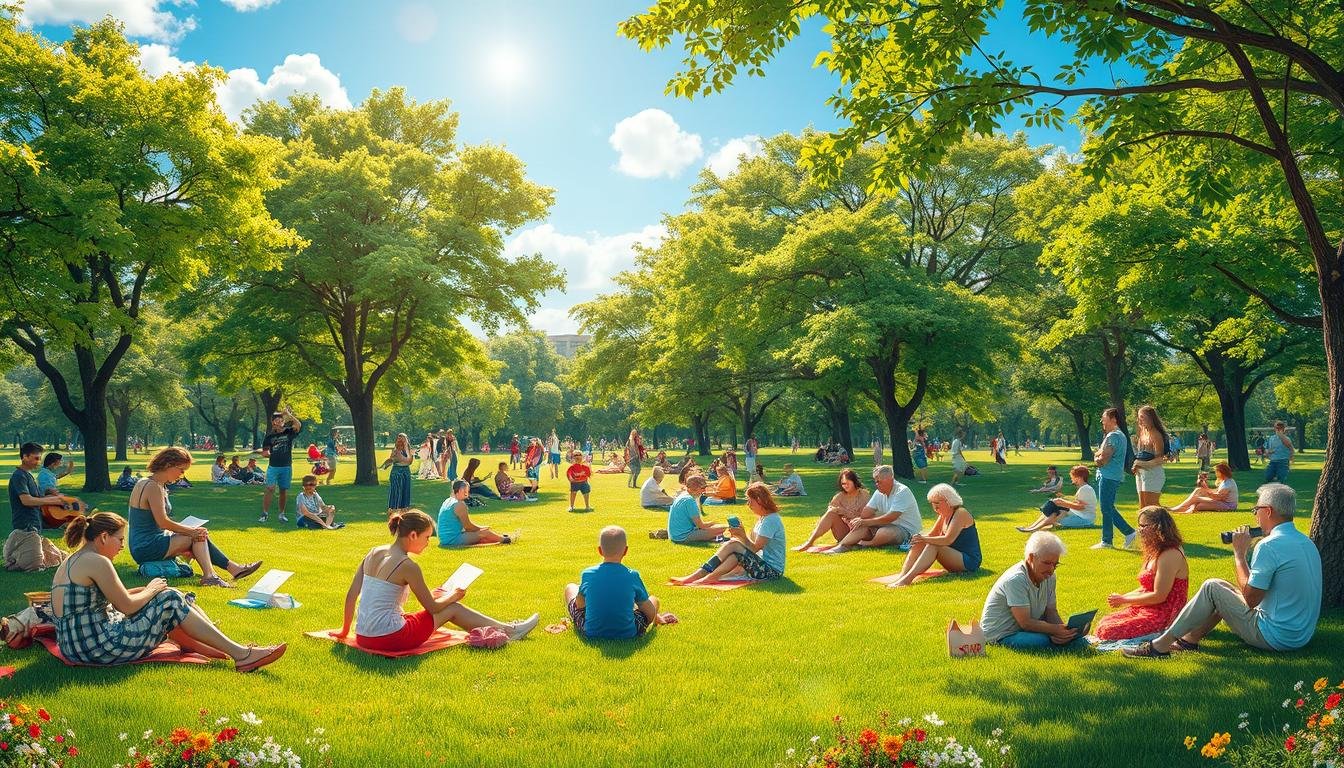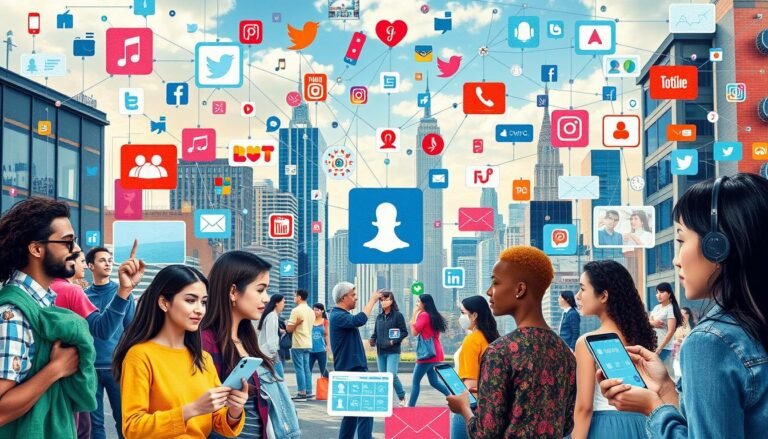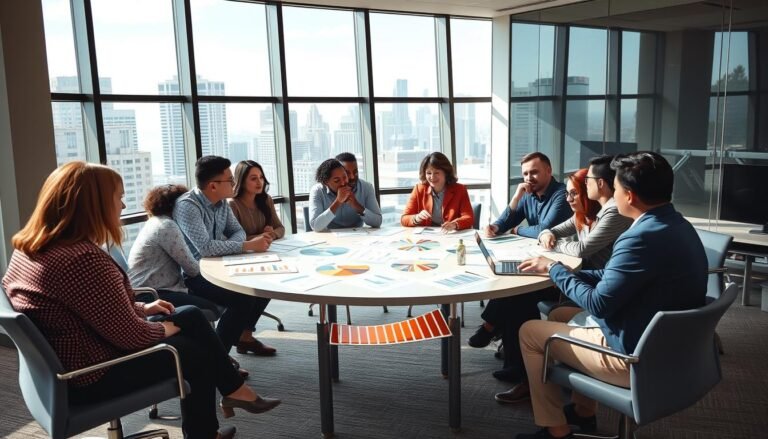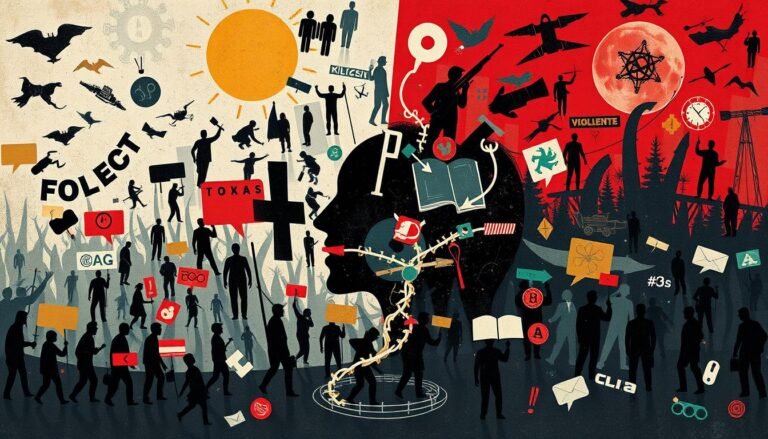The Sociology of Leisure: Understanding Free Time
Have you ever thought about why we pick certain activities when we’re not working? The study of leisure, or the sociology of leisure, looks into this. It shows how our choices in free time are shaped by our social lives and cultural norms. This field also looks at how work, play, and rest are connected in our lives.
Leisure studies used to mainly focus on how work affects our leisure time. Now, they look at how culture impacts our free time too. Researchers found that family, religion, and cultural values greatly influence our leisure choices. These factors often matter more than things like money or education.
New studies show that our leisure habits can’t just be explained by age, income, job, or education. This has made people interested in using interviews and other in-depth research methods. These methods help us understand why people choose to spend their free time the way they do.
Key Takeaways
- Leisure sociology looks at how we organize and enjoy our free time.
- Culture often has a bigger impact on our leisure choices than money or social class.
- Using in-depth interviews is becoming more important in studying leisure.
- Leisure is now seen as a key area of study, not just a break from work.
- It’s hard to measure and compare leisure activities accurately.
- Looking at gender and global perspectives is becoming more important in leisure studies.
Introduction to the Sociology of Leisure
The study of leisure looks at how we use our free time in today’s world. It started to grow in the 1970s and has become a key area of study. Now, it rivals other social sciences, showing us how we choose to spend our time outside of work.
Definition of Leisure in Sociological Context
Leisure is hard to define. It can be seen as a way of behaving or as activities that make us fulfilled. As a social institution, it’s key in shaping how we and others experience life. What leisure means changes with culture and time, showing what a society values.
Historical Development of Leisure Studies
Leisure studies became its own field in the mid-20th century. It first looked at how work and leisure relate, then explored how leisure connects with culture and minorities. A key book from 1976, with 158 pages, showed how important leisure is, aiming at those who plan and manage leisure activities.
Importance of Studying Leisure in Modern Society
Knowing about leisure is vital in our busy lives. Research shows work greatly affects our leisure time and what we do in it. Different groups have different levels of satisfaction with leisure, with women often facing more challenges. Leisure also lets people resist and challenge the status quo, going beyond just fun.
| Aspect | Finding |
|---|---|
| Women’s Leisure Enjoyment | Varies due to objective and subjective constraints |
| Work-Leisure Relationship | Significant factor in free time activities |
| Leisure as Resistance | Can serve as sites for popular resistance |
The study of leisure keeps growing, giving us deep insights into our society and how we use our free time.
Theoretical Foundations of Leisure Sociology
Leisure theories have grown a lot since the mid-20th century. Experts from fields like psychology and economics have changed how we see leisure, recreation, and play. Karl Marx’s ideas about capitalism helped start modern leisure studies.
Marx talked about the ‘realm of freedom’ and the ‘realm of necessity.’ He showed how activities differ between those for fun and those needed for survival. Marx believed leisure is tied to economics and politics, saying capitalism often gets in the way of true leisure.
Later scholars added to Marx’s ideas. Geoffrey Godbey looked at how leisure affects personal growth. John R. Kelly questioned the value of leisure in society. Chris Rojek argued that leisure is now linked to emotional work and smarts.
“Leisure has become a form of labor linked to emotional labor and intelligence.” – Chris Rojek
Today, leisure sociology knows that leisure can’t just be about money. Things like family and culture also shape our leisure choices. This deeper view helps us understand leisure better in our modern world.
Leisure studies are getting more complex, focusing on minority experiences and leisure and culture’s link. This shows the field’s growth and its importance in our evolving world.
The Work-Leisure Relationship
The balance between work and leisure has changed a lot over time. Today, finding a good work-life balance is key for our well-being. This change shows how society values leisure more now.
Evolution of Work and Leisure Balance
Before, work took up most of people’s lives. Now, we value leisure time more. Education plays a big part in this change. Those with more education enjoy a variety of leisure activities and spend more time on them.
Impact of Technology on Leisure Time
Technology has changed how we use our free time. Digital platforms let us relax and have fun in new ways. But, they also make it hard to separate work from leisure. This means we’re often connected to work, even when we’re supposed to be relaxing.
Leisure as a Counterbalance to Work Stress
Leisure activities help us relax and reduce work stress. They let us unwind, grow personally, and connect with others. Research by Samdahl in 1988 found that leisure activities improve our mental health and work performance.
| Leisure Activity | Stress Relief Level | Physical Health Benefit | Mental Health Benefit |
|---|---|---|---|
| Reading | High | Low | High |
| Exercise | High | High | High |
| Gardening | Medium | Medium | High |
| Video Games | Medium | Low | Medium |
Understanding how work and leisure relate helps us live healthier lives. It shows that leisure is essential for our well-being, not just downtime.
Social Stratification and Leisure
Social class greatly affects how we enjoy our free time. Income, job, and education all play a part in this. But, it’s not just about how much money you make. Education links to a wider variety of leisure activities and a deeper commitment to them.
Leisure time varies across different social groups. A study looked at 2,965 older U.S. adults. It found that most were married and mostly White, showing possible differences in leisure access. The study covered many leisure activities, like mental, social, physical, productive, and fun ones.
Mental activities were the top choice and boosted well-being the most. For older Swedish adults, spending time with friends was key to a good life. This shows how important it is to have various leisure options for all social classes.
“Leisure provides the means for exercising control over one’s environment.”
Socioeconomic factors shape not just what leisure activities we choose but also how they affect us. Being part of clubs was best for older adults’ well-being. Leisure, especially with others, linked to better health and happiness through strong social ties.
| Leisure Activity Type | Impact on Well-being | Social Class Influence |
|---|---|---|
| Mental Activities | Highest enhancement | More common in higher education groups |
| Social Activities | Highest quality of life | Varies across social classes |
| Physical Activities | Moderate improvement | Often linked to higher income groups |
| Productive Activities | Varies | Influenced by occupation |
Gender Perspectives in Leisure Studies
Gender greatly affects how we enjoy our free time. Studies show that men and women have different ways of spending their leisure. In Nigeria, a study with 200 civil servants found that men have more leisure time than women.
Gender Differences in Leisure Activities
Women often spend their leisure at home, reading or watching TV, while also doing household chores. Men, on the other hand, engage in a variety of activities like joining clubs and playing sports. These differences come from the roles society expects each gender to play.
Feminist Approaches to Leisure Research
Feminist studies on leisure highlight how gender affects free time. Researchers like Henderson and Shaw show how leisure can both support and question gender norms. They stress the need to understand the unique leisure experiences and challenges women face.
Leisure as a Site for Gender Equality
Leisure can be a way to fight for gender equality. Studies say women should use leisure for fun, which can lead to better health and productivity. By tackling the barriers women face in leisure, like household duties, we can work towards more gender equality in leisure activities.
| Gender | Common Leisure Activities | Main Constraints |
|---|---|---|
| Women | Reading, watching TV | Domestic work, jobs |
| Men | Club activities, sports | Jobs |
It’s important to understand these gender differences in leisure to make policies that support everyone’s right to enjoy free time, no matter their gender.
The Sociology of Leisure: Understanding Free Time
Since 1976, the study of leisure has grown a lot. It looks into how people spend their free time. This shows that leisure is more than just relaxing. It’s a mix of culture, society, and personal things.
Leisure includes everything from fun activities to deep hobbies. Some people enjoy their work so much, it feels like leisure. This shows how personal leisure experiences can vary a lot.
Being with others affects our leisure choices a lot. Things like family, religion, and culture shape what we do in our free time. For instance, hobbies help connect work and home life, giving us approved ways to use our free time.
Recently, learning about leisure has become more important. It’s about knowing and valuing leisure in our lives for a better quality of life. This means making thoughtful choices about how we spend our free time.
“Leisure is a way of living in optimum harmony with ourselves, our fellow humans, and our environment.”
Our leisure habits are changing with society. The digital world brings new ways to connect and new challenges. Understanding these changes helps us make better leisure policies and improve life for everyone.
Cultural Influences on Leisure Practices
Cultural leisure patterns shape how we enjoy our free time. Studies show that leisure activities differ widely across cultures. These differences come from many factors like family, religion, and cultural values.
Leisure and identity are closely linked. Our choices in free time mirror our cultural background and values. For instance, in Morocco, a Handicap International program boosted sports for people with disabilities. It led to 2000 runners, including those with disabilities, joining the Race for All event.
Education greatly affects our leisure choices. Higher education links to more leisure activities and a deeper commitment to them. This effect is stronger than income or job on leisure habits.
“Leisure is not merely free time, but a reflection of cultural values and personal identity.”
Studies on cross-cultural leisure stress the importance of understanding leisure deeply. In Eritrea, disabled war veterans got training to work, becoming role models. This shows how leisure can help with social integration and identity across cultures.
Leisure sociology has grown, moving past the work-leisure link to look at leisure in various cultures. This change highlights the complex relationship between cultural norms, personal choices, and leisure activities.
Leisure Consumption and Consumer Culture
Our free time has changed a lot in recent years. Now, how we spend our leisure time affects who we are and how we use our money. This shift has brought new trends in how we act as consumers and what media influences us.
Commodification of Leisure Experiences
Leisure activities are now often sold as products. People pay for unique experiences, not just things. This has made the leisure industry grow by 7% each year. Now, 85% of young adults see these experiences as a key part of their lifestyle.
Leisure and Identity Construction
How we use our free time tells a lot about who we are. Studies show that 68% of people make leisure a top priority when deciding how to spend extra money. This choice helps shape their personal image and social status.
The Role of Media in Shaping Leisure Preferences
Media has a big impact on what we do for fun. It shows us new activities and influences our choices. This has led to a 25% rise in online purchases of leisure products. Social media especially shapes what’s popular in free time activities.
| Gender | Leisure Time | Spending Habits |
|---|---|---|
| Women | Slightly more | 12% less than men |
| Men | Slightly less | 12% more than women |
These trends show how leisure has become a key part of our culture and economy. As consumer behavior changes, so does the way we enjoy our free time. The media’s influence on our choices continues to grow, shaping the future of leisure consumption.
Leisure and Social Capital
Leisure activities are key to building social capital and connecting communities. A 2012 study at Isfahan University of Medical Sciences found a strong link between social capital and free time. The study looked at 680 faculty members and showed a big connection between social capital and time spent on physical activities.
Leisure activities help grow personally and build communities. Joining in group sports or events boosts social capital. These activities let people meet new people and make stronger community ties.
Studies show that taking part in leisure activities is good for health. A Chinese study looked at how social capital and leisure affect health in cities. It found that social capital makes people happier with their leisure time and boosts their health ratings.
- Leisure satisfaction positively impacts self-rated health
- Social capital enhances leisure satisfaction
- Community-based leisure activities strengthen social bonds
Leisure spots are key for meeting people and building communities. For example, community gardens are places where social ties help leaders get resources. These spots help people connect, share knowledge, and learn new skills. This is key for local groups to get things done.
Putting effort into leisure activities helps both people and communities. By doing leisure activities, people can get healthier, make more friends, and help their communities feel better.
The Impact of Globalization on Leisure
Globalization has changed how we enjoy our free time, offering new chances and challenges. It has led to exciting trends in leisure that show how connected our world is.
Cross-cultural Leisure Practices
Cultural activities have mixed, creating diverse ways to relax and have fun. For instance, yoga, from India, is now a favorite way to unwind worldwide. American sports like basketball have fans all over the globe, proving the power of sharing leisure activities.
Tourism as a Global Leisure Phenomenon
Traveling to new places has become a big part of leisure, letting people experience different cultures and make memories. Budget airlines and online booking have made traveling easier, boosting this trend.
| Year | International Tourist Arrivals (millions) | Tourism Revenue (billion USD) |
|---|---|---|
| 2010 | 940 | 927 |
| 2015 | 1,195 | 1,260 |
| 2019 | 1,461 | 1,481 |
Digital Leisure in a Connected World
The internet has changed how we enjoy our free time, bringing digital entertainment to the forefront. Online games, streaming, and social media have made it easier for people to connect and have fun, no matter where they are.
Understanding how globalization affects our free time and how we connect with others is key. The mix of old and new leisure activities offers chances for personal growth and sharing cultures.
“Leisure has become a global language, connecting people through shared experiences and passions.”
Future Trends in Leisure Sociology
Looking ahead, new leisure patterns will change how we enjoy our free time. The future of leisure sociology will focus on technology and social change. With more older Americans, there’s a big need for affordable fun and personal growth options for them.
Remote work and the gig economy are mixing work and leisure. A Pew Research study showed that not many Americans see their job as their main identity. This could lead to new studies on how leisure affects our mental health and brings people together.
The Covid-19 pandemic has sped up many trends, changing our daily lives and leisure. We’ve seen the loss of live sports and a move to online health visits. Leisure sociologists are now looking into sustainable and ethical leisure as we face big challenges like social media and video game addiction.
Source Links
- Sociology of leisure
- The Sociology of Leisure and Recreation (Chapter 28) – The Cambridge Handbook of Sociology
- The Sociology of Leisure
- No title found
- Layout 1
- Leisure and meaning in life
- Social Relationships, Leisure Activity, and Health in Older Adults
- Gender and Leisure a Sociological Perspective
- Leisure and Gender: Challenges and Opportunities for Feminist Research
- The Sociology of Leisure
- Sociology of Leisure and Recreation Research Paper
- Leisure and the University: International Perspectives – International Journal of the Sociology of Leisure
- Recreation, leisure and sports – Community-Based Rehabilitation: CBR Guidelines
- Leisure and Consumption
- The relationship between social capital and the way of spending leisure time, based on physical activities
- Effects of Social Capital and Leisure Participation on Self-Rated Health of Urban Residents in Southwest China
- Sociology of Leisure and Recreation: Explanation and Examples
- The Future of Leisure
- A Moment in Time: Leisure and the Manifestation of Purpose – International Journal of the Sociology of Leisure







